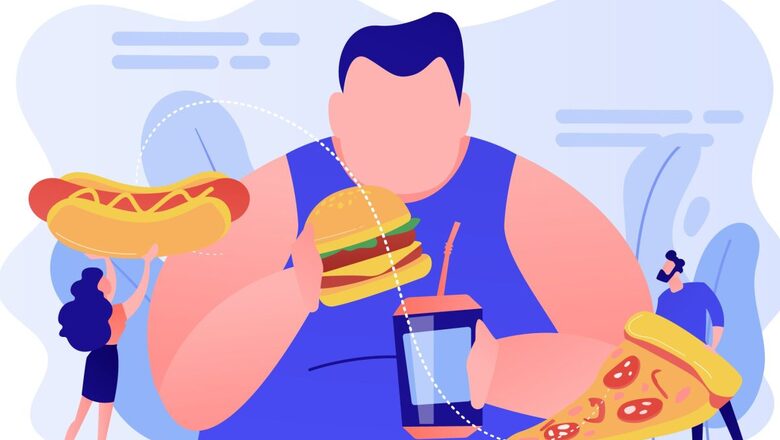
views
We’ve all had those times in our lives when stress, trauma, or depression prompted us to indulge in comfort foods. We believe these cravings will provide us with the solace we desire, and as a result, we end up eating larger quantities than usual. However, the aftermath of this experience does not settle us down; rather, we are overwhelmed with remorse and unsure of what to do next. Here’s when you need to listen to Nutritionist Bhakti Arora Kapoor, who said, “The aftermath of a binge can vary from person to person.” But some common behavioural traits have been identified.
Here is what the after-effects of binge eating look like:
- Physical discomfortThe nutritionist explained that “overeating can lead to feelings of bloating, stomach discomfort, or indigestion.” One is expected to feel lethargic and have irregular bowel movements.
- Emotional distressAccording to Bhakti, “Binge eating often brings about feelings of guilt, shame, or disappointment.” She suggested that a perceived lack of control or a departure from one’s preferred eating patterns can both trigger negative emotions.
- Mental impactBinge eaters, as per the expert, can develop anxiety connected to food, self-esteem, or body image. It may encourage further unhealthy lifestyle choices or a cycle of restrictive eating.
- Fatigue and energy fluctuationsBhakti informs that “consuming a large amount of food can cause fluctuations in blood sugar levels, leading to feelings of fatigue or low energy levels.”
- Desire for compensationThe guilt and negative emotions associated with binge eating can result in an individual trying to compensate for their overindulgence. People tend to not eat for a long time, exercise a lot, or punish themselves for losing control.
The expert, however, stated that it’s critical to approach recovery from a binge eating session with self-compassion, and the emphasis should be on overall well-being. She suggested “implementing strategies such as practising mindful eating, seeking support from professionals, engaging in self-care activities, and maintaining a balanced and nourishing diet.” She also lists a few things you can do to heal yourself.
- Take a few deep breaths
- Change into some comfortable clothing.
- Spend some time identifying what caused this binge episode.
- Note the cause with the date and time.
- Remind yourself that bingeing is not failing, rather, you are recovering.
- Repeat this out loud if that is more effective.
- Instead of committing that this was the last time you binged on food, try to reduce the frequency in the future.
















Comments
0 comment